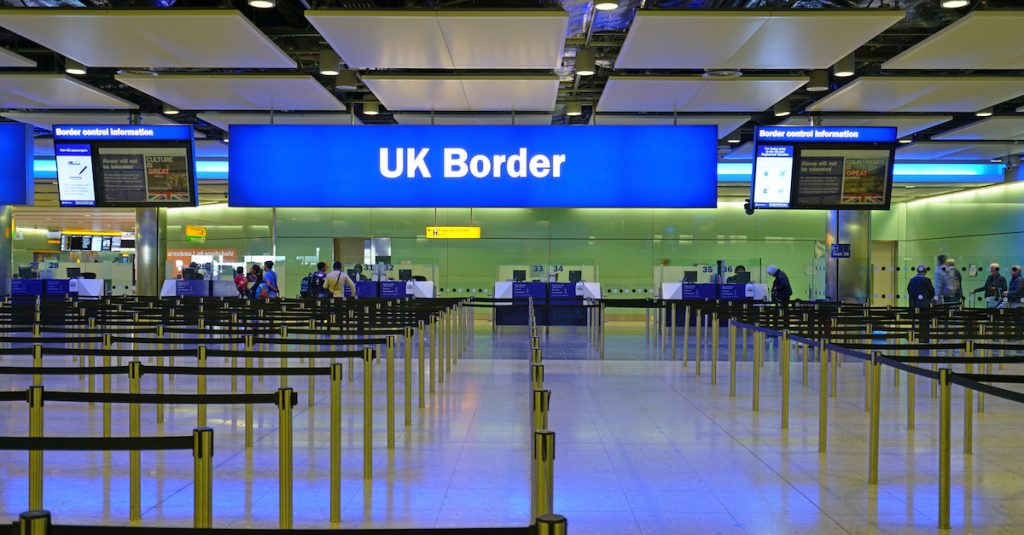Heathrow Airport is facing potential turmoil as Border Force staff prepare for a strike beginning the end of August. With industrial action looming, travellers are advised to brace for significant disruptions.
The strike action by Border Force staff at Heathrow is slated to last four days from August 31 to September 3, compounded by subsequent work-to-rule measures and an overtime ban. This development is likely to cause challenges for passengers, especially during the busy summer travel period.
Union Dispute and Strike Announcement
The Public and Commercial Services Union (PCS) has announced a four-day strike by Heathrow’s Border Force staff. Scheduled to commence on August 31, the action highlights ongoing disputes with the Home Office since a new rota was implemented in April.
The union represents 650 members who are primarily involved in passport control at terminals 2, 3, 4, and 5. The strike is the culmination of dissatisfaction over the rota changes, which have led to severe staff retention issues, affecting both operational capacity and staff morale.
Impact on Travellers
Travellers are warned to expect considerable disruptions during the strike. The period coincides with the tail end of the summer holidays, a peak time for international travel.
The Home Office assures the public of contingency plans aimed at minimising disruption, yet advises passengers to remain informed of the latest travel advisories to navigate through the anticipated delays.
Employee Concerns and Responses
PCS General Secretary Fran Heathcote expressed that staff are unwillingly choosing between professional obligations and personal commitments.
The union points out that the enforced rota changes impose significant rigidity, especially impacting employees with caring responsibilities, leading many to resign. Newly implemented laws on flexible working seem to be overlooked, further exacerbating dissatisfaction among the staff.
Heathcote reiterated that while Border Force employees are committed to border security, the current demands compromise their career satisfaction and work-life balance.
Official Statements and Contingency Plans
A spokesperson from the Home Office conveyed appreciation for the diligence of Border Force staff and stressed ongoing negotiation efforts to resolve the situation.
Heathrow Airport, in coordination with the Home Office, is set to support contingency plans. These plans have reportedly been effective in past disruptions to maintain passenger flow, albeit under different circumstances.
Legal and Social Underpinnings
The rota changes have reportedly resulted in the exodus of 160 Border Force personnel, citing inflexible schedules that clash with family commitments as a primary reason.
The union claims that despite changes in employment law favouring flexible work arrangements, requests for such accommodations are being denied, adding to the frustration and leaving employees feeling sidelined. The long-standing commitment of seasoned staff is being tested by such administrative decisions.
This friction is heightened by the refusal to grant flexible work requests despite new statutory rights, showcasing a gap between legislative intent and practical application.
Previous Industrial Actions
The current strike follows a series of industrial actions by Border Force employees earlier this year, including strikes and ‘work to rule’ measures during April, May, and June.
These actions underline persistent grievances and highlight the unresolved nature of employee unrest within Border Force, which the union asserts could have been mitigated with more responsive management strategies.
Looking Ahead
With negotiations continuing, the hope remains for a resolution that aligns the needs of staff and operational demands.
Future actions will depend on the outcomes of ongoing discussions between the union and officials. The need for flexibility and recognition of employee concerns remains central to these negotiations.
The impending strike at Heathrow underscores significant challenges within Border Force management. Effective solutions will require balancing operational demands with employee welfare.
As negotiations evolve, the focus should remain on achieving a resolution that supports both national security goals and fair work practices, reinstating morale among Border Force staff.

